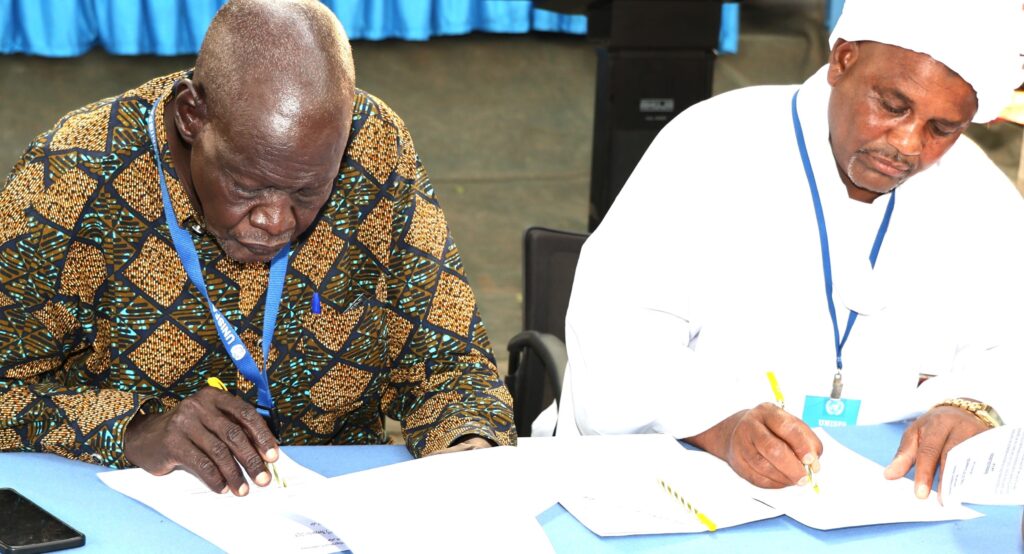Leaders from the Ngok Dinka and Misseriya communities in the disputed Abyei region have signed a new agreement aimed at preventing conflict during the crucial annual cattle migration.
The deal was struck at the end of a three-day conference in the town of Noong, organised by the UN peacekeeping force in Abyei (UNISFA), alongside the UN’s Food and Agriculture Organization (FAO) and the charity Concordis International.
The agreement pledges to safeguard civilians and livelihoods along the migration routes, and to strengthen trust between herders and farming communities.
The Abyei area, which is claimed by both Sudan and South Sudan, experiences two major migrations each year.
Tensions have historically flared as Misseriya herders, who are predominantly Arab, move their cattle southwards in the dry season and northwards during the rains, through areas inhabited by the Ngok Dinka people, who are largely Christian and have cultural ties to South Sudan.
This year’s migration comes amid an “increasingly complex regional context,” according to a UNISFA press release on Tuesday, with heightened security concerns and pressure on essential resources due to a spike in displaced populations.
Inclusive Dialogue
The conference was notable for its expanded inclusivity. For the first time, representatives from the Nuer community were invited to the opening session. Women made up a third of the attendees, with youth representatives accounting for 22%.
Following the talks, participants established four joint Misseriya-Ngok Dinka committees. Their tasks will be to address potential conflicts and to disseminate the conference’s outcomes across three main migration corridors.
A key practical measure involved the mapping of potential conflict hotspots and the updating of migration routes. The communities also proposed measures to mitigate risks and ensure a peaceful season.
The final resolution also highlighted the damaging impact of “harmful information” on peace efforts.
Leaders were called upon to support initiatives to counter rumours and fake news. The conference additionally addressed the effects of climate change on communities, designing measures to minimise associated challenges.
Calls for Enhanced Security
Community leaders used the conference to call on the UN peacekeeping force, UNISFA, to strengthen its protection of civilians and to increase security measures at the strategic Amiet common market. Youth leaders, meanwhile, pledged to work with partners to curb criminality.
In a statement, the Acting Head of UNISFA, Brigadier Ameer Umrani, reaffirmed the mission’s commitment to peace and security. He linked its support to a new UN mandate which “reiterates our longstanding obligation to protect civilians, provide security, and promote inter-communal dialogue.”
Brigadier Umrani also acknowledged financial challenges facing UNISFA and humanitarian organisations but stated they remained committed to their “raison d’être” in Abyei.
He concluded with a direct appeal to the communities: “It is only by working together that we will be able to achieve the desired goals and ensure the Abyei Box remains peaceful during this dry season.”




